
Resources Conservation & Recycling Advances
Scope & Guideline
Pioneering research for a greener, more efficient world.
Introduction
Aims and Scopes
- Circular Economy Practices:
Research related to the principles and practices of the circular economy, including strategies for waste reduction, resource recovery, and the design of sustainable systems. - Waste Management Strategies:
Studies that explore effective waste management techniques, including recycling methods, waste-to-energy technologies, and lifecycle assessments to minimize environmental impacts. - Sustainable Materials Development:
Exploration of new materials and technologies that promote sustainability, including recycling of industrial by-products, bio-based materials, and innovative construction materials. - Environmental Impact Assessment:
Research focusing on assessing the environmental impacts of various practices and technologies, emphasizing the importance of sustainability in decision-making processes. - Interdisciplinary Approaches:
Encouragement of interdisciplinary research that integrates insights from environmental science, engineering, economics, and social sciences to address complex sustainability challenges.
Trending and Emerging
- Digital Technologies in Recycling:
An increasing number of studies are exploring the role of digital technologies, such as blockchain and machine learning, in enhancing recycling processes and improving supply chain efficiencies. - Sustainable Innovations in Construction:
Research focusing on sustainable construction practices, including the use of recycled materials and innovative building techniques, has gained prominence, reflecting the growing emphasis on eco-friendly building practices. - Food Waste Management and Circularity:
There is a notable surge in studies addressing food waste management strategies, highlighting circular approaches that aim to reduce waste generation and promote resource recovery. - Behavioral Studies on Recycling:
Emerging research focusing on consumer behavior and social norms related to recycling and waste management is increasing, emphasizing the importance of community engagement and education. - Climate Change Mitigation Strategies:
Research targeting the intersection of waste management and climate change, particularly strategies that reduce greenhouse gas emissions through sustainable practices, is trending upward.
Declining or Waning
- Traditional Waste Management Models:
There has been a noticeable decrease in papers focusing on traditional, linear waste management practices, as the field increasingly shifts towards circular economy models and innovative resource recovery methods. - Single-Use Material Studies:
Research specifically targeting single-use materials and their disposal is declining, likely due to a broader focus on systemic changes that advocate for reduction and reuse rather than mere recycling. - Basic Recycling Techniques:
While recycling remains a core theme, studies that focus on basic or outdated recycling techniques are becoming less common as the field moves towards more advanced technologies and methods.
Similar Journals
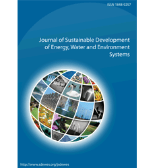
Journal of Sustainable Development of Energy Water and Environment Systems-JSDEWES
Innovating Pathways to Energy, Water, and Environmental HarmonyJournal of Sustainable Development of Energy Water and Environment Systems (JSDEWES), published by the International Centre for Sustainable Development of Energy, Water, and Environment Systems, is a premier Open Access journal that has been shaping the discourse surrounding sustainable energy, water management, and environmental systems since its inception in 2013. Based in Croatia, this esteemed journal, bearing the ISSN 1848-9257, emphasizes an interdisciplinary approach, making significant strides within its converged years from 2013 to 2024. With impressive rankings in 2023—Q3 in Energy Engineering and Power Technology, Q2 in Environmental Science (miscellaneous), and noteworthy positions in Renewable Energy, Sustainability and the Environment, and Water Science and Technology—JSDEWES showcases its commitment to advancing knowledge and innovation in crucial areas affecting our planet's sustainability. Designed for an audience of researchers, professionals, and students alike, this journal is pivotal in fostering research that enhances our understanding and implementation of sustainable practices, while its esteemed Scopus rankings further underline its impact and contribution to the field.
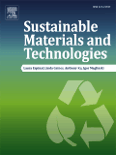
Sustainable Materials and Technologies
Transforming Materials Science for Sustainable SolutionsSustainable Materials and Technologies is an esteemed journal published by Elsevier, focusing on pioneering research and innovative solutions in the fields of industrial engineering, materials science, and environmental sustainability. With a prestigious Q1 ranking in multiple relevant categories—including Industrial and Manufacturing Engineering, Materials Science, Renewable Energy, Sustainability, and Waste Management—this journal is positioned as a leading platform for disseminating high-impact research that addresses pressing challenges in material sustainability. Recognized for its rigorous peer-review process and commitment to academic excellence, Sustainable Materials and Technologies is dedicated to providing open access to groundbreaking studies and practical methodologies that drive forward the agenda for a sustainable future. Since its inception in 2014, the journal has been integral for professionals, researchers, and students who are engaged in the quest for innovative materials and technologies that minimize ecological footprints. Join a community at the forefront of sustainability science by contributing to and engaging with the transformative research published in this pivotal journal.

Waste Management
Innovating waste management practices for a sustainable future.Waste Management, published by Pergamon-Elsevier Science Ltd, stands as a premier journal in the field of waste management and disposal, reflecting its esteemed position with an impressive 2023 impact factor and ranking in the Q1 category. This journal is pivotal for researchers, professionals, and students, offering a rich repository of innovative studies and methodologies aimed at addressing the increasingly critical challenges in waste management. With a dedicated focus on advancing knowledge and practice in environmental science, it encompasses a wide array of topics from waste reduction techniques to sustainable disposal strategies. Founded in 1983, Waste Management continues to be at the forefront of academic discourse, providing invaluable insights into both theoretical frameworks and practical applications, thus playing a vital role in shaping the future of waste disposal practices worldwide.
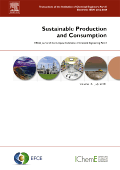
Sustainable Production and Consumption
Championing Environmental Stewardship through KnowledgeWelcome to Sustainable Production and Consumption, a premier journal published by Elsevier in the vibrant field of sustainability and environmental science. With an ISSN of 2352-5509, this journal has established itself as a leading platform for innovative research and discourse on sustainable manufacturing, consumption practices, and environmental technologies. As evidenced by its impressive 2023 rankings—Q1 in Environmental Chemistry, Environmental Engineering, Industrial and Manufacturing Engineering, and Renewable Energy, Sustainability and the Environment—the journal ranks among the top tier of its field. Researchers and professionals alike are invited to explore the journal’s rigorous peer-reviewed articles, which aim to advance the understanding and implementation of sustainable practices across various industries. With a strong commitment to disseminating impactful research, Sustainable Production and Consumption serves as an essential resource for academics, policy makers, and industry leaders seeking to address the challenges of modern environmental sustainability.

Detritus
Advancing sustainable solutions for a cleaner future.Detritus, an esteemed open-access journal published by CISA PUBLISHER since 2018, serves as a vital platform for the dissemination of innovative research in the fields of Environmental Chemistry, Environmental Engineering, and Waste Management and Disposal. Based in Padova, Italy, the journal aims to foster scholarly communication and collaboration among researchers, professionals, and students dedicated to advancing our understanding of environmental challenges and solutions. With its open-access model, Detritus ensures that high-quality research is freely available, bridging the information gap within the scientific community. While currently categorized in the Q3 quartile across multiple environmental science disciplines, the journal is poised to further enhance its visibility and impact, contributing significantly to pressing global issues such as waste reduction and sustainable resource management. As the journal continues to evolve, it encourages submissions that advance theory and application in these critical areas.
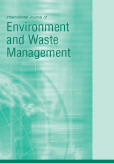
International Journal of Environment and Waste Management
Exploring New Frontiers in Environmental EngineeringThe International Journal of Environment and Waste Management, published by InderScience Enterprises Ltd, serves as a vital platform for researchers and professionals in the fields of Environmental Engineering and Waste Management. With an ISSN of 1478-9876 and an E-ISSN of 1478-9868, this journal encompasses a wide range of topics from innovative technologies in waste processing to sustainable environmental practices. Ranked in the Q3 category for Environmental Engineering and Q4 for Waste Management and Disposal in 2023, it holds significance in advancing knowledge and impacting practices in these essential domains. The journal accepts articles that contribute to the understanding and development of effective waste management strategies, ensuring alignment with contemporary environmental challenges. As it converges years from 2006 to 2024, it continues to attract contributions that reflect the latest research and methodologies. For scholars, students, and practitioners alike, this journal is an invaluable resource, enriching the dialogue around environmental sustainability and waste minimization.
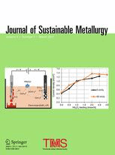
Journal of Sustainable Metallurgy
Fostering impactful dialogue on material sustainability.Journal of Sustainable Metallurgy is a leading academic journal published by Springer, dedicated to advancing knowledge in the field of sustainable metallurgy and material sciences. With an ISSN of 2199-3823 and E-ISSN 2199-3831, this journal occupies a pivotal role in the intersection of Environmental Science, Materials Science, and Engineering, boasting a commendable impact factor and significant visibility in scholarly discussions. Operating under a Q2 category in 2023 across various rankings, including Environmental Science and Mechanics of Materials, it provides valuable insights for researchers, industry professionals, and students focusing on sustainable practices in metallurgy. The journal's aim is to disseminate high-quality research that addresses the technical challenges and innovations in material sustainability from 2015 to 2024. Through robust peer-review processes, it ensures the dissemination of rigorous research, fostering an informed dialogue within the global materials community. For those interested in open access options, please refer to the publisher's website for more information.
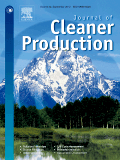
Journal of Cleaner Production
Elevating Standards in Environmental Science and PracticeThe Journal of Cleaner Production, published by Elsevier Science Ltd, is a leading interdisciplinary journal dedicated to the development and dissemination of knowledge on environmental sustainability and cleaner production practices. With an impact factor that reflects its high relevance in the field, the journal is recognized as a Q1 publication in key categories including Environmental Science, Industrial and Manufacturing Engineering, Renewable Energy, and Strategy and Management as of 2023. This prestigious journal has been a platform for groundbreaking research since its inception in 1993 and continues to shape the dialogue around sustainable practices in various sectors. Researchers and professionals across disciplines can access its wealth of insights, which are critical for driving the transition towards more sustainable production and consumption models. The journal’s rigorous peer-review process ensures that only high-quality research is published, making it an essential resource for academics, industry leaders, and policymakers committed to advancing cleaner production methodologies.

Recycling
Championing the future of materials efficiency and recycling.Recycling is a renowned international open access journal published by MDPI that has been dedicated to advancing the field of recycling and waste management since its inception in 2015. With a focus on innovative technologies, management practices, and policy frameworks, this journal serves as a platform for researchers, professionals, and students who are eager to explore sustainable solutions in resource recovery and material efficiency. Based in beautiful Basel, Switzerland, Recycling boasts an impressive impact with a 2023 ranking of Q2 in Management, Monitoring, Policy and Law and Q1 in Materials Science (Miscellaneous), signifying its pivotal role in driving forward-thinking research in these critical areas. The journal is indexed in Scopus, with strong performance metrics highlighting its relevance and quality, such as a rank of #42 in Waste Management and Disposal. As an open access publication, Recycling promotes the dissemination of knowledge, ensuring that groundbreaking research is freely available to a global audience. Whether you are a seasoned researcher or a student eager to contribute to the discourse surrounding sustainable practices, Recycling provides a vital resource for those committed to the future of waste management and environmental sustainability.

MRS Energy & Sustainability
Catalyzing Change in Energy Systems and SustainabilityMRS Energy & Sustainability is a premier interdisciplinary journal published by SpringerNature, focusing on advancing the understanding of energy systems and sustainability within the context of materials science and engineering. Since its inception in 2014, this journal has rapidly gained recognition in the academic landscape, achieving impressive rankings including Q1 in Electronic, Optical and Magnetic Materials and Mechanics of Materials, and Q2 in Energy Engineering and Power Technology as well as Renewable Energy, Sustainability and the Environment, as of 2023. The journal's ISSN is 2329-2229 and E-ISSN is 2329-2237. With a commitment to open access, it provides researchers and professionals with the latest findings and insights essential for guiding innovations in energy solutions and sustainable practices. The journal's global reach and high-impact reputation make it an invaluable resource for scientists, engineers, and policymakers dedicated to addressing the contemporary challenges of energy and sustainability. With a diverse scope and high Scopus rankings, MRS Energy & Sustainability continues to be at the forefront of research that shapes our energy future.